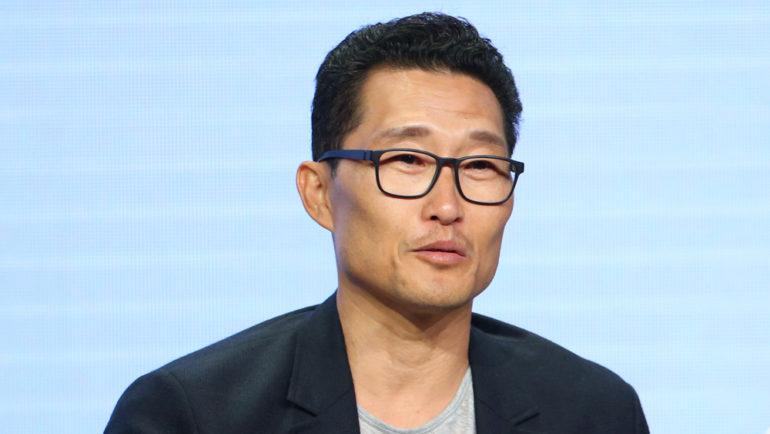‘Lost’ Star Daniel Dae Kim Talks Hollywood’s Growing Appetite for Asian Fare
By Rebecca Davis
LOS ANGELES (Variety.com) – In the post-“Crazy Rich Asians” and “The Good Doctor” era, trawling Asia for new IP to bring to Hollywood has gone from being an “esoteric pursuit” to a “mad scramble,” actor and producer Daniel Dae Kim told Variety on the sidelines of the Asia Society’s U.S.-Asia Entertainment Summit, which took place Tuesday, on the eve of the AFM.
Kim’s own production company, 3AD, has about 20 projects at various stages of development for both TV and film. A few of its properties are from Korea, and one was originally a Japanese manga. A few originated as stage plays, while others were books.
“It’s kind of anywhere and everywhere,” Kim told Variety. “Nowadays a good story is told in many different places. Everyone’s looking for that story now that’s going to cross borders, and I think we can find it.”
The dapper star first known for his breakout roles in the TV shows “Lost” and “Hawaii Five-0” has a busy acting slate lined up. He just finished shooting the movie “Stowaway” in August in Germany alongside Toni Collette and Anna Kendrick. The three play astronauts on a mission to Mars in the second full-length feature by Brazilian helmer Joe Penna (“Arctic”), which is set to hit theaters in 2020.
Kim recently finished shooting the immigration-themed indie film “Blast Beat,” a first feature from Colombian director Esteban Arango, about two Colombian brothers who adjust to life in the U.S. It was funded and produced by Macro, and written by Arango and Erick Castrillon. Kim acted alongside real-life brothers Mateo and Moises Arias, as well as Wilmer Valderrama (“That ‘70s Show”) and Colombian-American singer Kali Uchis in her first theatrical role.
Kim also just finished a turn as a tech billionaire in six episodes of “Flack,” a British TV show about crisis PR management, and will be shipping off again to England next week for a new film that will be announced around that time.
He has run production company 3AD for the past six years. One of its projects is a take on a Korean-style tragic love story. “Koreans are really good at epic romance, at deeply passionate stories of tragedy and love,” he said when asked about what kinds of popular Asian tropes might translate well elsewhere. “It’s something that I’ve personally been attracted to, because seeing Asian men as romantic leads is something we haven’t seen a lot of. It’s something that I have a personal stake in and would like to see change.”
He played Ali Wong’s hunky but callous boyfriend in Netflix’s “Always Be My Maybe,” which also featured two other Asian male love interests played by Randall Park and Keanu Reeves.
But the South Korea-born actor is keen to clarify that, despite being Asian American, he’s not just focusing on Asian-American stories. He notes that although his hit TV show “The Good Doctor,” which marked his first turn as executive producer, was adapted from a popular Korean series, it centers on a character with autism, played by Freddie Highmore.
“Right now, it’s a bit in vogue to say we’re focusing on underrepresented people, but when I started my company in 2013, I can guarantee you that was not the trend. I take a little bit of pride in that I was a little bit before the wave,” he said with a laugh.
He likes to use the analogy of a high school party where the popular kids are at the center and everyone else is on the sidelines. “I’m more interested in telling the stories of the people in the peripheries of the party. I want find all the people who weren’t invited to the party, because those are the people we haven’t heard from yet.”
Industry players are finally waking up to this kind of thinking, he said.
“It’s become very competitive to find IP from Asia, especially Korea, because Hollywood loves to follow a leader, and the fact that it’s been done successfully now means that there are more people who are going to copy that formula,” Kim explained. “It’s a good thing, because the world is getting smaller as a result. You’re seeing stories that may never have been told otherwise getting a chance.”
Kim believes that the greater commercial success of content sourced from Asia or featuring Asian stars is also paving the way for more nuanced conversations about Asian identity.
“There has been a tendency in the States to consider all of Asia one kind of monolithic group, but I think it’s starting to change now,” he said. “There’s an increasing cultural sensitivity to the various cultures within Asia, to the fact that it’s very hard to think of an Indian America as the same as a Malaysian American when they’re separated by thousands of miles of geography and very different cultures.”
On the flip side, he spoke of how he also believed that Americans from different Asian cultural backgrounds are united within a broader Asian American experience, admitting that the issue of casting was a bit of a “minefield.”
“If you’re talking about a story that’s Asian American, to me it becomes less important what specific country these actors come from, because if the focus is being American, that’s the story. It’s not about how specifically Chinese or Indonesian or Pakistani you are.”
Either way, a greater diversity of Asian voices is here to stay.
“This isn’t a fad the way Hong Kong cinema was in the ‘80s, because there’s just a greater awareness in the American population at large of Asian culture,” Kim said, citing K-pop and even the popularization of Asian cuisines as reference points. “I even see kimchi in supermarkets now, and that’s something I could never have imagined 20 years ago, ever!”

